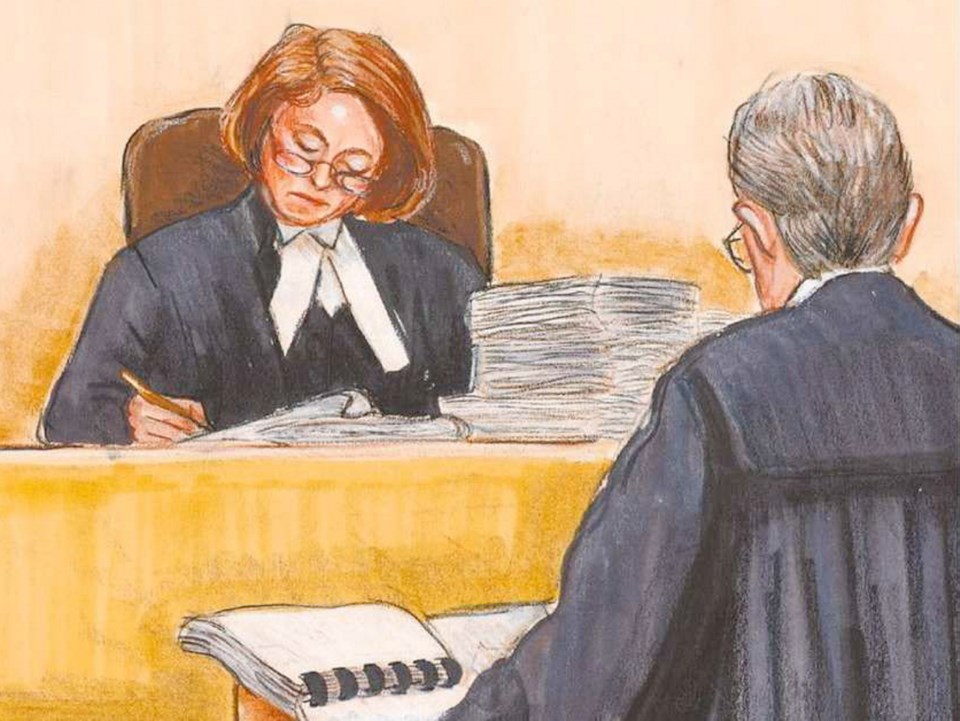The rear-end car accident that changed Lois Powell’s life six years ago left her near penniless, eventually cost her her White Rock home, and forced her to move to Victoria to get help from her children.
Now, a B.C. Supreme Court judge has blamed the Insurance Corp. of B.C. for the woman’s ongoing misery, saying it wrongfully denied Powell permanent disability benefits.
In a judgment that will alter how ICBC deals with people who suffer long-term injuries, Justice Janice Dillon said the insurance corporation can’t deny Powell benefits just because she was not receiving them on the two-year anniversary of the crash.
The crash happened on Oct. 25, 2010. Powell was off work for several weeks recovering from her injuries, and returned part-time to her job as a secretary and bookkeeper on Nov. 22, 2010.
But after several years of constant pain in her back and neck, she was forced to quit. When she applied to ICBC under its “total disability” payments program, she was rejected because she had not been receiving benefits on the accident’s two-year anniversary.
The courts have previously told ICBC to stop applying its benefits rule so narrowly. In April, three Court of Appeal justices rejected ICBC’s bid to overturn an almost identical 2014 ruling, in which it was ordered to pay permanent disability benefits to Heidi Symons, another injured motorist.
Powell, now 60, said she was devastated when ICBC denied her disability claim in 2013.
“They made my life hell, actually,” she said. “I literally cried for days.”
At stake was a $300-a-week payment from ICBC, which Powell said was all that stood between her and losing her home. “I knew I could scrape by on what they paid. I knew that I could keep my townhouse as long as I had that money coming in. When my lawyer told me it was denied, I literally had no idea what I was going to do next,” Powell said. “It meant that I had to sell my townhouse. I had to uproot everything and move to Victoria so my children could help me.”
The two Supreme Court judg-ments and the Court of Appeal ruling, put together, make it clear that ICBC can no longer narrowly interpret a law that sets the eligibility criteria for disability payments, said Powell’s lawyer, Jacqueline Small.
ICBC spokesman Sam Corea said the corporation is assessing the ruling’s effects.
“It’s important to understand we are obligated to follow the Insurance [Vehicle] Act. Both the Symons case and Powell case were about the claimant’s Temporary Total Disability benefits in very unusual circumstances. There was no question about the claimants’ entitlement to medical and rehabilitation benefits, which we have and continue to pay.”
Powell has two lawsuits outstanding against ICBC. The main suit against ICBC and the motorist who hit her is to be heard in May. She is also suing ICBC for acting in bad faith for denying her benefits. Dillon had put that claim aside pending her verdict on whether Powell was entitled to benefits.
Powell said she hopes the ruling makes it easier for others in a similar situation.
“I do hope it helps people because I don’t want anyone else to go through what I went through.”



